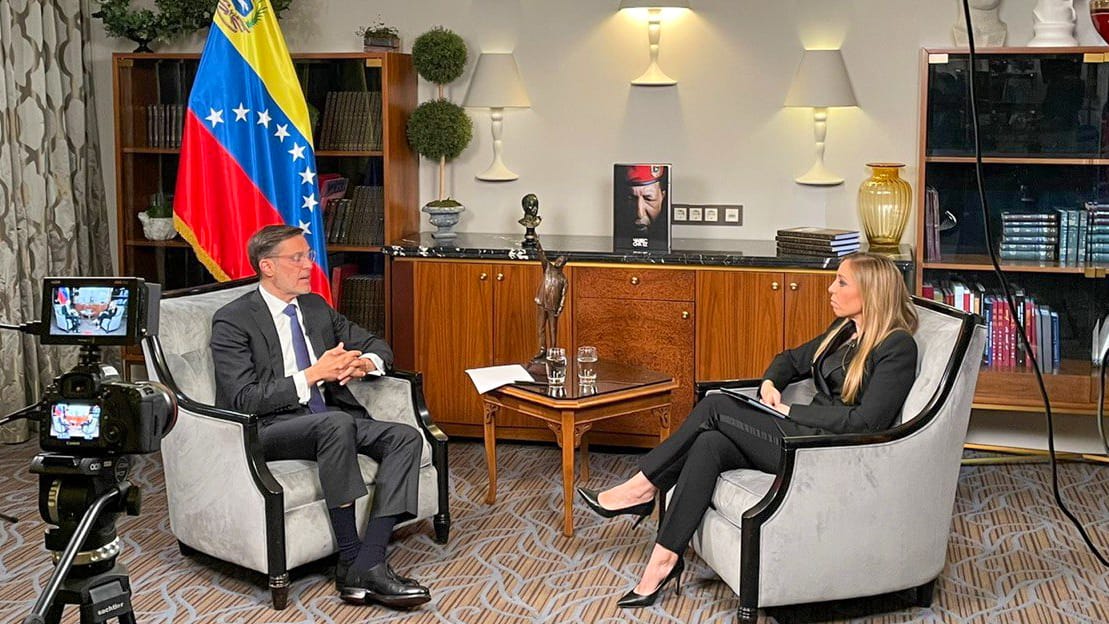The Government of Venezuelan President Nicolás Maduro “aims for the best relations with all the members of the international community, without exceptions,” said Foreign Minister Félix Plasencia, who is on an official visit to Russia.
In an interview with RT, the Venezuelan Foreign Minister affirmed that Maduro “has always said that his arms are opened for a meeting with the U.S. and all the member countries of the international community.”
In his opinion, the South American country “is still a fundamental leader in the region,” is “committed to peace, multilateralism and the search for an understanding with the U.S.”, and that in the past, during the presidency of late Hugo Chávez, support was given to the establishment of regional organizations such as the Bolivarian Alliance for the Peoples of Our America (ALBA), the Union of South American Nations (UNASUR), Petrocaribe, and the Community of Latin American and Caribbean States (CELAC).
“I hope the U.S. recognizes that the imposition of coercive measures against the Venezuelan people is a wrong path that will only bring discredit and shame to the U.S. people.”
About his visit to Russia, he said that while the Venezuelan delegation was there “to discuss relations between the two countries,” it was doing so on behalf of the rest of the Latin American nations as “Venezuela is the natural gateway” to South America.
Are the U.S. sanctions effective?
The Venezuelan Foreign Minister recalled that the coercive measures used by the U.S. government to bring about a withdrawal from Maduro “affect the people of Venezuela and they will not overthrow the Maduro government, which has been strengthened after this years-long process.”
Likewise, he added that the imposition of sanctions, which primarily persecute the oil industry, has led Venezuela to diversify its oil production, whose main market was the United States.
“I hope there will be a good government in the United States that recognizes that imposing coercive measures on the Venezuelan people is a wrong path that will only bring discredit, ignorance and shame to the U.S. people.” said Plasencia.
Elections and the EU
Regarding the forthcoming regional and local elections on November 21, the Venezuelan foreign minister recalled that the European Union (EU) accompaniment “has been agreed on a document signed between a sovereign State and the 27 states that comprise it (the EU).”
“We hope these agreements will not be violated, as that would mean terminating the agreement,” he added.
The EU Electoral Observation Mission, which will participate in the electoral process at the invitation of the National Electoral Council (CNE), has committed to fully respecting the principles of “impartiality, objectivity and independence,” and not to meddling in an election where different sectors of the Venezuelan opposition will participate, including a sector that had previously abstained from participating.
Relations with Iran
Regarding Iran and Venezuela, the Venezuelan foreign minister affirmed that the two countries a historical relationship.
“We both reject foreign meddling, imperialism and coercive measures.”
“We both defend sovereignty. We are very important oil producers. We have large reserves of natural gas. We defend the world energy markets. Those will always be reasons for rapprochement, encounter and work,” said.
Plasencia also said that the two nations share a same voice, “the rejection of foreign meddling, imperialism and coercive measures.”
To get to know all of Félix Plasencia’s thoughts on these and other current topics, we invite you to watch the full interview.



